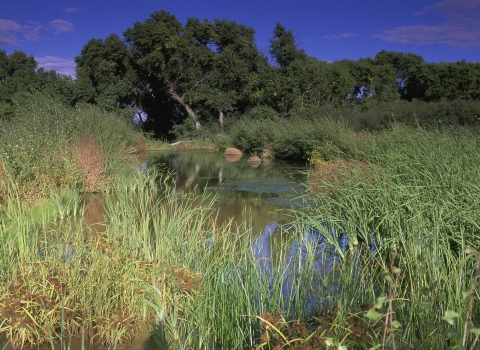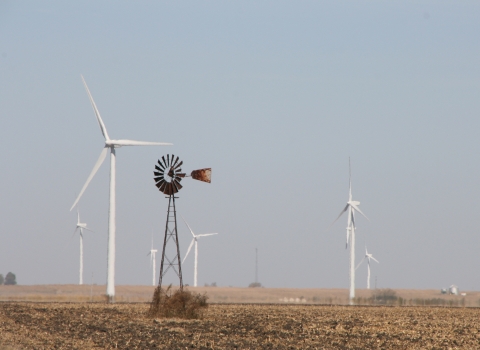The United States Fish and Wildlife Service, Cibola National Wildlife Refuge and Imperial National Wildlife Refuge will be conducting prescribed fires beginning the week of December 11 through December 15, 2023. The refuges are continuing a proactive land management approach by using fire as a managementtool.The 2023 goaloftreating approximately 160 acres on Cibola NWR and 125 acres on Imperial NWR will reduce thefuture possibility of wildfires while enhancing critical marsh bird habitat.
Prescribed burning, conducted under an approved plan with the use of adequate firefighting resources, is the best method to prevent potential loss from a wildfire. Firefighters from the USFWS Arizona Fire Management Program and interagency partners will complete these prescribed burn prescribed burn
A prescribed burn is the controlled use of fire to restore wildlife habitat, reduce wildfire risk, or achieve other habitat management goals. We have been using prescribed burn techniques to improve species habitat since the 1930s.
Learn more about prescribed burn projects. Firefighter and public safety are the top priority.
Refuge biologists and fire personnel worked together to develop a plan that will protect endangered species and reduce vegetation that is impeding habitat restoration work. Prescribedburningtreatments may also costaslittleasonetenthofthatof a large-scale wildfire suppression effort. All burn plans are developed using national interagency standards developed by qualified and experienced fire management professionals. The plans are extensively reviewed and must be approved by the refuge manager prior to ignition.
Fire Management personnel from the USFWS Arizona Fire Zone will closely monitor weather and fuel conditions to maximize results and minimize smokeimpactsonadjacent communities. Burns will only be conducted during the daytime hours. Cibola, Arizona and Martinez Lake may be impacted by smoke for short periods of time.Smoke may also be visible to residents in the Yuma, Arizona and Blythe, California areas.
For questions, please contact Annalily Lopez at annalily_lopez@fws.gov or 928-783-3371, ext.16 at Imperial National Wildlife Refuge or Jeremy Welch at jeremy_welch@fws.gov or 928-857-3253, ext.102 at Cibola National Wildlife Refuge. To learn more about local fire restrictions and for fire information for federal, Tribal and state lands in Arizona, visit the Arizona Interagency Wildfire Prevention website or call 1-877-864-6985 (toll free).
The U.S. Fish and Wildlife Service is the principal federal agency responsible for conserving, protecting, and enhancing fish, wildlife and plants and their habitats for the continuing benefit of the American people. The Service manages the 95-million-acre National Wildlife Refuge System, which encompasses 544 national wildlife refuges, thousands of small wetlands and other special management areas. It also operates 69 national fish hatcheries, 64 fishery resources offices and 81 ecological services field stations. The agency enforces federal wildlife laws, administers the Endangered Species Act, manages migratory bird populations, restores nationally significant fisheries, conserves and restores wildlife habitat such as wetlands, and helps foreign and Native American tribal governments with their conservation efforts. It also oversees the Federal Assistance program, which distributes hundreds of millions of dollars in excise taxes on fishing and hunting equipment to state and wildlife agencies.


